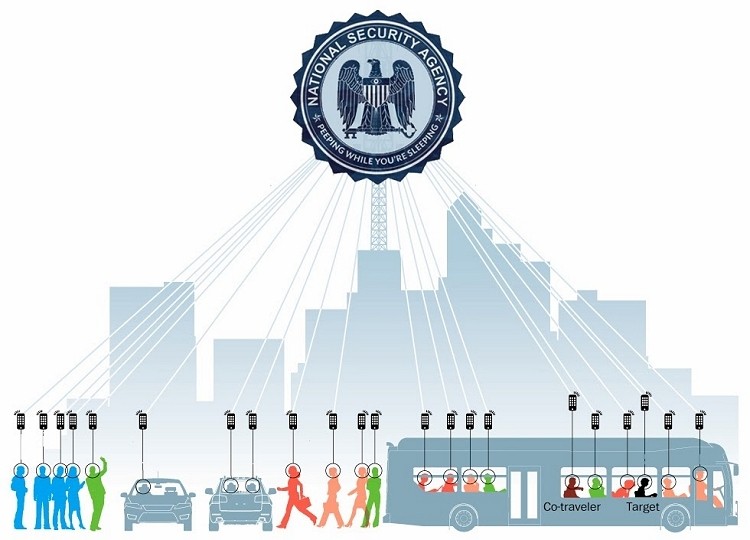The National Security Agency gathers close to five billion records per way with regard to the whereabouts of cell phones across the globe. The information is then stored in a massive database that keeps track of the locations of hundreds of millions of handsets according to the latest leaked documents from whistleblower Edward Snowden.
Documents suggest the NSA doesn't target the locations of Americans' cell phones on purpose but rather "incidentally." An anonymous senior collection manager said the NSA gathers vast volumes of data by tapping into the cables that connect mobile networks, both stateside and abroad. The source declined to give an exact number of devices tracked, however, saying it would be awkward for them to try to provide specific numbers.

Based on the vast pool of data at their disposal, agents can find a cell phone anywhere in the world and retrace its movements. This can help the agency identify hidden relationships among those using the devices, we're told, and accurately map out exactly where the user has been. Mobile phones are known to broadcast their location even when they aren't being used to place a call.
Naturally, officials in the US said the programs used to collect and analyze data are within the bounds of the law and are done so strictly to gather intelligence about foreign targets. Legal or not, however, many privacy advocacy groups believe location data is uniquely sensitive. That's even truer when the majority of data collected isn't relevant to national security.